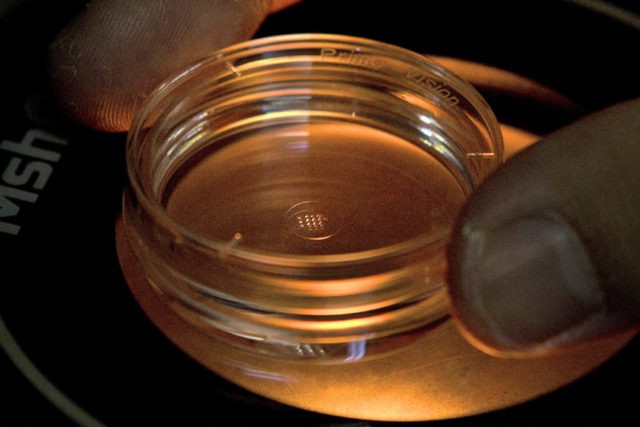The case pressed by the Chinese government against He Jiankui, the scientist who stunned biologists and alarmed the medical community by claiming he modified the DNA of unborn children, came into sharper focus on Tuesday with allegations He used fake blood samples to slip his project past review boards.
Radio Free Asia quoted the accusation of faking blood samples from Chinese media reports about the investigation on Tuesday. It would appear to be the first specific allegation of lawbreaking against He Jiankui, generally seen as facing jeopardy for violating vaguely-worded bans against editing the genes of human embryos, subverting medical ethics, and possibly using unsafe methods.
“The latest report about the investigation by Guangdong authorities revealed something new, that Dr He had forged ethical documents. Details are so far lacking, but that’s an egregious ethical violation,” noted molecular biologist Kiran Musunuru of the University of Pennsylvania.
“It’s up to the Chinese government to decide how strictly this should be enforced and what penalties apply. Given the tenor of the reported statements from the authorities involved in the investigation, it seems they’ll be quite strict,” Musunuru predicted.
A good deal of the negative coverage about He stresses his venal motivations for doing so, as with the Xinhua news service declaring he was driven by the desire for “personal fame and wealth.” Allegations of falsified blood work would help to build the case that He knew his experiment was illegal.
Radio Free Asia saw grim portents for He’s future in the Chinese government’s embarrassment over how easily he evaded oversight:
Heng He, a U.S.-based commentator with a PhD in biology, said the fact that He had managed to complete a cutting-edge and highly controversial procedure at all showed how lax ethical and medical regulation is in China.
“Why can’t you do this anywhere in the world, and yet you can do it in China?” Heng said. “At the very least, it shows that there is very little regulation of clinical trials on humans in China.”
“In the U.S., if you want to work with human subjects, you have to undergo layer upon layer of approvals; it’s very strict,” she said. “That’s why so many drugs trials and clinical studies have relocated to China, because the regulation is very lax there.”
This is not a criticism Beijing will enjoy hearing, especially with Chinese parents taking to the streets over a string of vaccine scandals. Lax regulation is currently a very hot topic in Chinese medicine.
Chinese authorities have promised to bring charges against He Jiankui’s assistants, but there has been little indication of further charges and it is not even clear He himself is under arrest.
Another loose end is the genetically engineered children themselves – twin girls so far, with a third child possibly on the way. Medical ethicists around the world are debating how closely the children should be monitored and whether they should be told they have been genetically modified when they grow up.
Bubbling underneath this speculation is unspoken apprehension about what the Chinese government might decide to do with the children. The trickle of information reaching the outside world suggests the twins were born alive and are currently healthy, while the third pregnancy is well underway.
The University of Oxford hit all of these points in a statement released on Tuesday calling for punitive action against He Jiankui and compassion for the children and their parents:
The response to reckless human experimentation has to go way beyond Dr He’s dismissal. This is not merely a failure of compliance, Dr He failed to grasp the ethical principles and concepts he was vigorously espousing. There will undoubtedly be more guidelines and laws on gene editing but we also need basic education of the next generation of scientists in what ethics is and why this kind of behaviour is wrong. This was not a failure of science, or even regulation, but ethics.
More important than He’s fate is the future for those victims affected. The couples and babies will need world-class medical management and counseling. The second couple carrying a gene edited pregnancy should have already been fully informed of and understood the risks to their fetus and given the free choice to continue or terminate their pregnancy.
The Associated Press quoted World Health Organization (WHO) Director-General Tedros Adhanom Ghebreyesus calling for “clear guidelines” on gene editing, a stance that implies the genetic genie is squeezing out of his bottle and outright prohibition might no longer be feasible.
“We have a big part of our population who say, ‘Don’t touch.’ We have to be very, very careful, and the working group will do that,” Tedros said of WHO’s project to draft appropriate regulations.

COMMENTS
Please let us know if you're having issues with commenting.